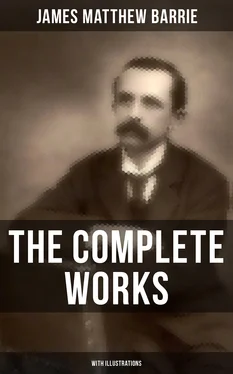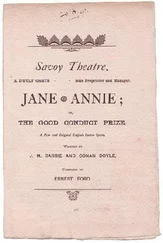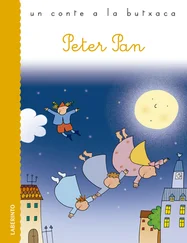It was with such unwonted severity as this that Hendry called upon Jamie to follow him to church; but the boy went off, and did not return till dusk, defiant and miserable. Jess had been so terrified that she forgave him everything for sight of his face, and Hendry prayed for him at family worship with too much unction. But Leeby cried as if her tender heart would break. For a long time Jamie refused to look at her, but at last he broke down.
"If ye go on like that," he said, "I'll gang awa oot an' droon mysel, or be a sojer."
This was no uncommon threat of his, and sometimes, when he went off, banging the door violently, she ran after him and brought him back. This time she only wept the more, and so both went to bed in misery. It was after midnight that Jamie rose and crept to Leeby's bedside. Leeby was shaking the bed in her agony. Jess heard what they said.
"Leeby," said Jamie, "dinna greet, an' I'll never do't again."
He put his arms round her, and she kissed him passionately.
"O, Jamie," she said, "hae ye prayed to God to forgie ye?"
Jamie did not speak.
"If ye was to die this nicht," cried Leeby, "an' you no made it up wi' God, ye wouldna gang to heaven. Jamie, I canna sleep till ye've made it up wi' God."
But Jamie still hung back. Leeby slipped from her bed, and went down on her knees.
"O God, O dear God," she cried, "mak Jamie to pray to you!"
Then Jamie went down on his knees too, and they made it up with God together.
This is a little thing for me to remember all these years, and yet how fresh and sweet it keeps Leeby in my memory.
Away up in the glen, my lonely schoolhouse lying deep, as one might say, in a sea of snow, I had many hours in the years long by for thinking of my friends in Thrums and mapping out the future of Leeby and Jamie. I saw Hendry and Jess taken to the churchyard, and Leeby left alone in the house. I saw Jamie fulfil his promise to his mother, and take Leeby, that stainless young woman, far away to London, where they had a home together. Ah, but these were only the idle dreams of a dominie. The Lord willed it otherwise.
Chapter XIX.
A Tale of a Glove
Table of Contents
So long as Jamie was not the lad, Jess twinkled gleefully over tales of sweethearting. There was little Kitty Lamby who used to skip in of an evening, and, squatting on a stool near the window, unwind the roll of her enormities. A wheedling thing she was, with an ambition to drive men crazy, but my presence killed the gossip on her tongue, though I liked to look at her. When I entered, the wag at the wa' clock had again possession of the kitchen. I never heard more than the end of a sentence:
"An' did he really say he would fling himsel into the dam, Kitty?"
Or—"True as death, Jess, he kissed me."
Then I wandered away from the kitchen, where I was not wanted, and marvelled to know that Jess of the tender heart laughed most merrily when he really did say that he was going straight to the dam. As no body was found in the dam in those days, whoever he was he must have thought better of it.
But let Kitty, or any other maid, cast a glinting eye on Jamie, then Jess no longer smiled. If he returned the glance she sat silent in her chair till Leeby laughed away her fears.
"Jamie's no the kind, mother," Leeby would say. "Na, he's quiet, but he sees through them. They dinna draw his leg (get over him)."
"Ye never can tell, Leeby. The laddies 'at's maist ill to get sometimes gangs up in a flame a' at aince, like a bit o' paper."
"Ay, weel, at ony rate Jamie's no on fire yet."
Though clever beyond her neighbours, Jess lost all her sharpness if they spoke of a lassie for Jamie.
"I warrant," Tibbie Birse said one day in my hearing, "'at there's some leddie in London he's thinkin' o'. Ay, he's been a guid laddie to ye, but i' the course o' nature he'll be settlin' dune soon."
Jess did not answer, but she was a picture of woe.
"Ye're lettin' what Tibbie Birse said lie on yer mind," Leeby remarked, when Tibbie was gone. "What can it maiter what she thinks?"
"I canna help it, Leeby," said Jess. "Na, an' I canna bear to think o' Jamie bein' mairit. It would lay me low to loss my laddie. No yet, no yet."
"But, mother," said Leeby, quoting from the minister at weddings, "ye wouldna be lossin' a son, but juist gainin' a dochter."
"Dinna haver, Leeby," answered Jess, "I want nane o' thae dochters; na, na."
This talk took place while we were still awaiting Jamie's coming. He had only been with us one day when Jess made a terrible discovery. She was looking so mournful when I saw her, that I asked Leeby what was wrong.
"She's brocht it on hersel," said Leeby. "Ye see she was up sune i' the mornin' to begin to the darnin' o' Jamie's stockins an' to warm his sark at the fire afore he put it on. He woke up, an' cried to her 'at he wasna accustomed to hae'n his things warmed for him. Ay, he cried it oot fell thrawn, so she took it into her head 'at there was something in his pouch he didna want her to see. She was even onaisy last nicht."
I asked what had aroused Jess's suspicions last night.
"Ou, ye would notice 'at she sat devourin' him wi' her een, she was so lifted up at hae'n 'im again. Weel, she says noo 'at she saw 'im twa or three times put his hand in his pouch as if he was findin' to mak sure 'at something was safe. So when he fell asleep again this mornin' she got haud o' his jacket to see if there was onything in't. I advised her no to do't, but she couldna help herself. She put in her hand, an' pu'd it oot. That's what's makkin' her look sae ill."
"But what was it she found?"
"Did I no tell ye? I'm ga'en dottle, I think. It was a glove, a woman's glove, in a bit paper. Ay, though she's sittin' still she's near frantic."
I said I supposed Jess had put the glove back in Jamie's pocket.
"Na," said Leeby, "'deed no. She wanted to fling it on the back o' the fire, but I wouldna let her. That's it she has aneath her apron."
Later in the day I remarked to Leeby that Jamie was very dull.
"He's missed it," she explained.
"Has any one mentioned it to him," I asked, "or has he inquired about it?"
"Na," said Leeby, "there hasna been a syltup (syllable) aboot it. My mother's fleid to mention't, an' he doesna like to speak aboot it either."
"Perhaps he thinks he has lost it?"
"Nae fear o' him," Leeby said. "Na, he kens fine wha has't."
I never knew how Jamie came by the glove, nor whether it had originally belonged to her who made him forget the window at the top of the brae. At the time I looked on as at play-acting, rejoicing in the happy ending. Alas! in the real life how are we to know when we have reached an end?
But this glove, I say, may not have been that woman's, and if it was, she had not then bedevilled him. He was too sheepish to demand it back from his mother, and already he cared for it too much to laugh at Jess's theft with Leeby. So it was that a curious game at chess was played with the glove, the players a silent pair.
Jamie cared little to read books, but on the day following Jess's discovery, I found him on his knees in the attic, looking through mine. A little box, without a lid, held them all, but they seemed a great library to him.
"There's readin' for a lifetime in them," he said. "I was juist takkin' a look through them."
His face was guilty, however, as if his hand had been caught in a money-bag, and I wondered what had enticed the lad to my books. I was still standing pondering when Leeby ran up the stair; she was so active that she generally ran, and she grudged the time lost in recovering her breath.
"I'll put yer books richt," she said, making her word good as she spoke. "I kent Jamie had been ransackin' up here, though he came up rale canny. Ay, ye would notice he was in his stockin' soles."
Читать дальше












